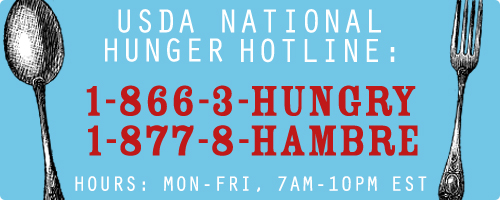In December, the Administration proposed a rule change designed to undermine Congress and decrease states’ ability to feed their hungriest residents. The proposed rule was announced on the same day as the passage of the 2018 Farm Bill and effectively would add strict time limits to SNAP benefits despite Congress having rejected these harsh terms in the final Farm Bill. Specifically, this administrative end-run would decrease SNAP access nationwide for the population dubbed Able-Bodied Adults Without Dependents, (ABAWDs). To fully understand the potential impact of this harmful proposal, it is helpful to first review the current rule.
What Are the Current Rules?
Currently, states must limit individuals who are considered ABAWDs to three months of SNAP benefits within a 36-month period. ABAWDs are defined as individuals between the ages of 18 and 49 who do not care for a dependent and who are physically and mentally able to work. Certain exemptions can apply to individuals who would otherwise be subject to the ABAWD three-month time limit, but states have a poor track record of understanding and applying these exemptions. Without an exemption, ABAWDs lose their SNAP benefits after three months unless they are able to secure employment of at least 80 hours each month and report their work hours to the state SNAP agency.
Congress passed this ABAWD time limit rule in 1996 during an era of welfare reform, based on the misguided belief that stripping individuals of their food assistance would miraculously connect them with employment. This theory has been disproven countless times, but the harsh ABAWD time limit rule still exists, and SNAP beneficiaries must work at least 80 hours per month to receive food assistance beyond three months.
Predictably, the ABAWD time limit is hurtful in geographic areas with high levels of unemployment or a labor surplus; if there are no available jobs, then it is impossible to work the necessary hours for continued food assistance. To counteract this paradox, the federal law currently allows states to request a “waiver” of the ABAWD time limit in certain circumstances. The most common circumstance under which a state will qualify for an ABAWD time limit waiver is an unemployment rate of 10% or more. When a waiver is in place, ABAWDs can receive food assistance, even if they can’t find 80 hours of work per month.
What Would the Proposed Rule Change?
The proposed rule dramatically limits states’ ability to obtain ABAWD time limit waivers from the federal government by heightening the required unemployment numbers and slashing states’ ability to request area-specific flexibility. In short, the proposed rule would tie states’ hands by setting the bar for waiver qualifications impossibly high.
The South Carolina legislature has previously restricted our state’s ability to request ABAWD time limit waivers on a statewide basis for the fiscal year 2018-2019. Under the current federal law, 22 of our state’s 46 counties qualify for a waiver exemption due to high labor surplus. Individuals in these counties who cannot find work due to no fault of their own are forced to also go hungry because of our state’s cruel action. This was proven to be even more misguided when our state was pummeled by hurricanes in the Fall 2018 that left many areas in ruins and many South Carolinians unemployed. South Carolina residents would have benefited enormously from increased access to food assistance during this difficult time, had our legislature not needlessly limited this option.
The proposed federal rule would impose a similarly misguided limitation on all states, stripping them of the ability to expand access to food during times of economic hardship or natural disaster. It would also prevent South Carolina from ever undoing this harmful proviso. We cannot allow the entire nation to walk down this broken path.
Will It Improve Unemployment?
No. High unemployment remains prevalent in most of South Carolina’s rural areas due to lack of jobs, infra-structure and transportation. Further barriers like mental health, substance use disorder problems or a criminal record, and continued struggles with poverty and hunger are guaranteed for many in these areas. People apply for SNAP benefits because they are hungry and increasing their hunger is not going to create jobs or make them more employable. The new proposal will only make these problems worse—for even more people.
As a state already suffering from hunger and poverty, we must reject this rule because it will make things worse. Instead of compromising South Carolina’s best tool in the fight against hunger, we should protect and strengthen it.
SC Appleseed is mobilizing to collect comments from South Carolinians to demonstrate the state’s broad opposition to this ill-conceived rule. We have launched a platform that the public can use to submit comments directly to U.S. Department of Agriculture. The deadline to submit comments is Tuesday, April 2, 2019


